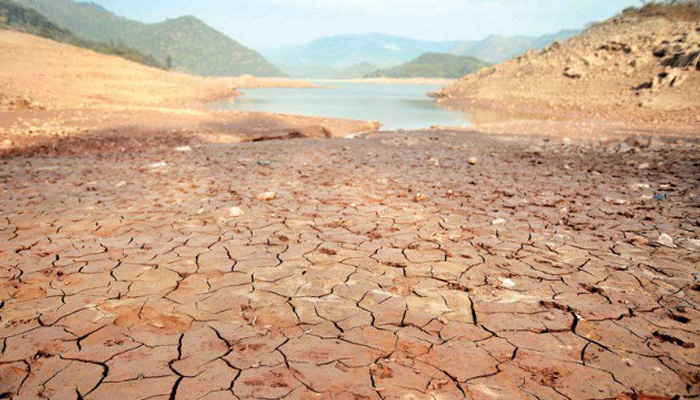
Availability of adequate resources of water is not a luxury but a basic need for the survival of human beings. Water is not only a source of foodstuff but also a cheap source of generating energy. Currently, growing needs of energy have forced the countries to construct dams. There are imbalances between the demand and the availability of water as the level of water is dropping with the increasing supplies. Almost every country is facing water sharing issues at both national and international fronts. In case of Pakistan, the water sharing issue has been traced back to the pre partition history of British rule. The water sharing issue is the outcome of unjust policies of British government as its engineers designed the canal system by inundation of numerous canals in the Indus valley for the irrigation purposes. The Indus basin comprises of seven rivers and the combined Punjab was the first beneficiary of this system.
The word Punjab itself is derived from Panj(five) and Aab(water) meaning thereby ‘land of fiver rivers’. These five rivers are the tributaries of Indus Basin. In 19th century, during the British rule, Sindh protested against the overuse of Indus water by Punjab and the British government was interested in favouring Sindh against Punjab. So, various commissions and committees named Indian Irrigation Commission 1901, Cotton Committee and Ray Commission were setup to prohibit Punjab from the use of Indus basin water without any prior permission of Sindh. In 1945, Sindh-Punjab Agreement was signed for the distribution of water giving 75% of Indus Water to Sindh and 25% to Punjab. This treaty gave supremacy to Sindh over Punjab.
Currently, Pakistan has the largest integrated network of irrigation system which consists of 19 barrages, three major reservoirs, 12 inter-river link canals, 45 independent irrigation canals and more than 122268 water courses. The storage capacity of two major dams of Pakistan is reducing by one percent as compared to the population growth rate of three percent. So, it is the need of the hour to construct dams after every 10 years but the failure to construct any other major dam after Tarbela and Mangala is causing the provincial disharmony that ultimately threaten sovereignty.
Pakistan is not at all suffering from surplus of Indus water but from the shortage of adequate water storages, and extensive network of canals and sub canals. Province Sindh, being a lower riparian accuses upper riparian Punjab and KPK of robbing the share of Sindh in Indus water by overusing the water. Sindh alleges Punjab for continuous volition of international law on water and previous agreements by stealing the water through Chashma-Jehlum and Taunsa-Panjnad. Sindh while blaming that the water shortage is causing economic and agricultural problems also rejects the Kalabagh Dam project because this project would further curtail the water storage capacity of Manchare Lake and Haleji Lake. Punjab, on the other hand, argues that about 35MAF water gets wasted into the Arabian Sea that can be utilised for irrigation purposes. It also points out the water losses about 14MAF between Sukkar and Kotri Barrages. Moreover, Punjab depends upon the Indus Water Treaty (signed by the government of Pakistan not Punjab) and its two link canals of Chashma-Jhelum and Taunsa-Panjnad.
The government of Punjab is a great supporter of Kalabagh Dam while, along with Sindh, KPK strongly opposes Kalabagh Dam saying that ‘Kala’ will go for Pakhtuns while ‘Bagh’ will go to Punjabis. They oppose this project by giving the argument that the dam’s electricity generating turbines will be installed across the Punjab border but the reservoirs of the dam will be constructed in KPK due to which a large agricultural land of Nowshehra would be drowned. They also show their reservations on the issue of water logging, salinity and a large number of people who will be displaced for the execution of the project. Balochistan Assembly also resists against this project and terms it as another instrument of Punjab to dominate the smaller provinces.
Constitutional institutions such as Council of Common Interest (CCI), The Indus River System Authority (IRSA), Water and Power Development Authority, Provincial Irrigation Departments, and Provincial Irrigation and Drainage Authorities are established while many legislative acts are also passed but these institutions are almost fail in bringing coordination and mutual understanding among the provinces. All this happens because there are also a number of overlapping legislature acts, for example, the working domain of provincial water management is taken over by federal authorities like WAPDA.
Despite all the debate above, the matter of fact is that all the international agencies have already warned Pakistan regarding the acute shortage of water availability by 2025 that can ultimately cause a water war among the provinces in Pakistan.
About Author
The author is a doctor in Political Science with her expertise in Pakistan’s inter-provincial water sharing issue. Currently, she is serving Lahore Leads University as Chairperson of the Department of Politics & IR.





